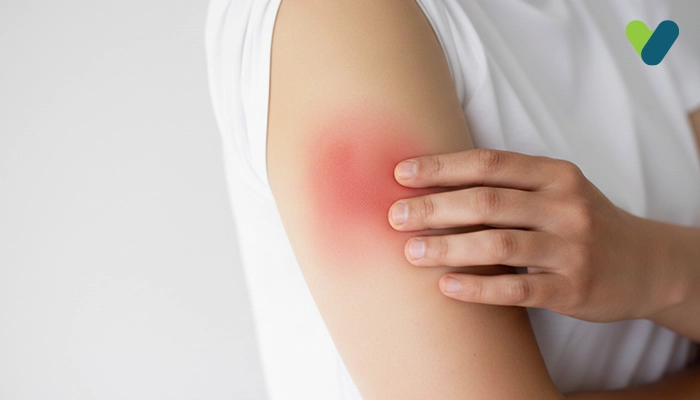The virus that causes cervical cancer in women and genital warts in both men and women is the human papillomavirus (HPV).
Sneha wonders if HPV can enter the genitals, mouth, or throat during intercourse or oral sex and induce infection. Rohan tells her that it is possible because it is a virus that may be passed from person to person through sexual contact. Therefore, they decide to take the HPV vaccine to avoid getting infected by the virus because most sexually active adults are prone to the virus.
The Several Types of HPV
HPV is a sexually transmitted virus that occurs in over 40 distinct types. The hpv side effects of female and hpv side effects of male depend on the kind of virus you acquire.Some forms of HPV cause genital warts. Other HPV varieties can cause cancer in cells. Cervical cancer is the most well-known hpv side effect, although it also causes malignancies of the vulva, vagina, penis, anus, head, and neck.
Why Should Adults Get Vaccinated Against HPV?
Infection with the human papillomavirus (HPV) is persistent. HPV will infect most sexually active persons at some time in their lives. In the United States, more than 42 million people are infected with HPV, and the majority of them are unaware of it.It quickly spreads among infected couples. HPV infection has no symptoms in most people, but it can lead to genital warts and anal cancer in both men and women. HPV can potentially cause cancer of the throat.
When Should Adults Get Vaccinated Against HPV?
Before you start having sexual activity, it's essential to obtain the HPV vaccine. As a result, the CDC advises that both boys and girls get vaccinated around 11 or 12. However, they can receive it as early as age 9. You can still obtain the vaccination if you're 13 or older and haven't already been immunized.Side effects of the HPV vaccine
1. The most common side-effects of hpv vaccineThe HPV vaccination has some adverse effects. More than one out of every ten patients who have received the Gardasil or Gardasil 9 HPV vaccination had:
The most frequent adverse effects are redness, swelling, soreness at the injection site, and headache, which should go away within a few days.
2. The common hpv vaccine side-effects
More than 1 in 100 persons have had the Gardasil or Gardasil 9 HPV vaccine. Still, less than 1 in 10 have had the Gardasil or Gardasil 9 HPV vaccine have bruises or itching at the injection site, a fever or feeling hot and shaky, or feeling nauseous, besides experiencing pain in arms, hands, fingers, legs, feet, or toe ache.
3. The rare side-effects of hpv vaccine
An itchy red rash affects less than 1 in 1,000 patients who receive the Gardasil or Gardasil 9 HPV vaccination (hives).
4. The infrequent hpv vaccine side-effects which are pretty uncommon
Only around 1 in 10,000 persons who have received the Gardasil or Gardasil 9 HPV vaccination report difficulty breathing or airway obstruction.
What other side-effects can be there?
Following immunization, some people may feel dizzy or faint.Girls and boys are advised to sit or lie down for the injection in the school-delivered immunization program, and any indicators of an initial reaction are watched.
1. Reporting the side-effects
Side effects should be reported. You may also use the Medicines and Healthcare Products Regulatory Agency's Yellow Card Scheme to report any adverse side-effects of the hpv vaccine to the suspect.
2. Reactions due to allergies
Some patients may experience a more severe allergic reaction, an anaphylactic reaction as an hpv vaccine side-effect.
If a person has severe side effects of the hpv vaccine, the healthcare practitioner who administers it will be completely prepared to handle it. Treatment typically results in complete recovery within a few hours.
How safe is this vaccine?
Before vaccines can be widely distributed, they must undergo extensive testing. Before being made available to the general public, the HPV vaccinations were tested on thousands of people and safe.These vaccinations have been in use for years, and specialists believe the chances of a significant response are pretty remote. Mercury is not included in the HPV vaccination.
Who should not take the vaccine?
- Certain persons should either avoid or postpone having the HPV vaccine:
- Anyone who has previously experienced a life-threatening adverse response to an HPV vaccination dosage
- Anyone who has previously experienced a life-threatening adverse response to a component in the hpv vaccine side-effect.
- Women who are pregnant as an hpv side effect female
- Anyone who has a moderate or severe sickness, even if they are just somewhat unwell, may still take the HPV vaccination.
What Are the Ingredients in HPV Vaccines?
There are no viruses in the HPV vaccination, and it is not manufactured from human papillomavirus.Proteins comparable to those present in the human papillomavirus are the active components in the HPV vaccination. Genetically engineered bacteria produce the proteins, subsequently purified and combined into a sterile, water-based solution.
Conclusion
Vaccination against HPV is a cancer preventative measure. HPV is thought to be responsible for over 36,000 cancer cases in men and women in the United States each year. By avoiding the infections that cause these malignancies, HPV immunization can prevent 33,000.For females under 14, the Indian Academy of Pediatrics Committee on Immunization (IAPCOI) advises that HPV vaccinations be administered in two doses, six months apart. The vaccine is administered in a three-dose schedule to people aged 15 and above.
